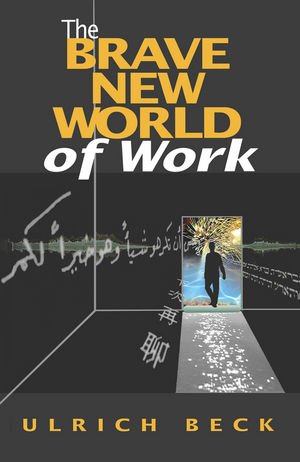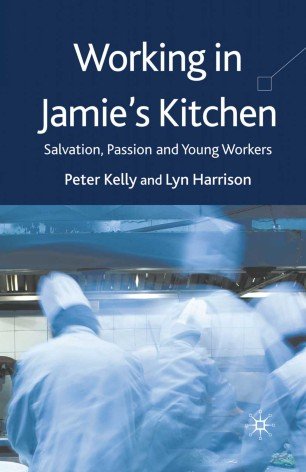Young People and the Future of Work
Professor Peter Kelly
In this blog, and in a blog that will follow on 21st Century Skills, I will draw on the work that I have been doing in the last 20+ years in this space to explore the ‘history’ of the ‘problem’ of young people and the future of work, and why at this time the idea of 21st Century Skills is seen to be a productive way for governments, businesses, education systems and communities to manage this ‘problem’.
Young People and the ‘History’ of the Future of Work
The ‘problem’ of young people’s transitions from school to work, and how governments, businesses, schools, communities and individuals can manage young people’s education, training and employment pathways has been a significant feature of youth policy since the early 1980s. This is especially evident in Australia and in many other developed economies.
At various times this ‘problem’ has taken on greater importance. Including during and after the Global Financial Crisis of 2008-09, and in the still unfolding context and consequences of the COVID-19 pandemic and the social and economic lockdowns of the last two years..
The challenge at these times of crisis and disruption is to keep in mind the longer term trends and trajectories that characterise this ‘problem’, and to reflect on the dominant ways in which this problem has been imagined, and why.
In a recent PhD project that I supervised, Meave Noonan adopted an approach to researching this problem that points to a number of important ways in which we should think about young people and the future of work.
The project - which was titled The Problem of Youth Unemployment in a De-Industrialising City: A Genealogy of Employability Skills, Innovation and Enterprise - analysed various Federal and State policy responses to transformations in youth employment and labour markets since the 1970s.
The research also examined the ways in which these transformations played out in the Victorian regional city of Geelong, a former ‘manufacturing powerhouse’ that had, like many other ‘rust belt’ towns and cities in Australia (Newcastle in NSW, and Elizabeth in SA), the US (Detroit) and elsewhere, been ‘smashed’ by the flight of capital and jobs as a consequence of processes of neo-liberal globalisation since the 1980s.
Meave’s main interest was in exploring the concepts of ‘employability skills’, ‘innovation’ and ‘enterprise’ (21st century skills), and to ask how these contested, and often ambiguous concepts had emerged, at different times since the 1980s, as promising to provide a ‘solution’ to the problem of youth unemployment in the context of these processes of neo-liberal globalisation.
My purpose in referencing this work here is to identify a number of points that Meave developed and encountered, and which are important in shaping the ways in which these two blogs will explore the ‘problem’ of young people and the future of work:
Transformations to the economy, youth labour markets, and young people’s education, training and employment pathways since the 1980s have been fundamentally structural;
However, most policy responses, and the politics of these transformations, have focussed on individual young people’s ‘employability skills’, ‘innovation’ and ‘enterprise’ (21st century skills), how to develop these, and what happens to those young people who don’t have these ‘skills’;
There is not one single ‘youth labour’ market. Rather, in different rural and regional areas, towns and cities, and economic sectors (‘legacy’, ‘emerging’ ‘platform-based’, creative and arts-based) there are different education, training and employment opportunities for young people;
These different labour market opportunities and forms of economic activity require different skill sets;
Different young people - both individually and as members of ‘populations’ such as First Nations, migrant and refugees (CALD), neuro-diverse, ’working class’ young men and women - face different challenges and opportunities on their education, training and employment pathways and in developing the ‘skills’ that different labour markets demand.
These ideas, which have featured heavily in youth studies during this period, have both informed the ways in which we developed the Vital Arts research project, and the ways in which we would like the research to contribute new knowledge to this ongoing ‘problem’. In the next blog, for example, we will return to a number of these points to think about what some have called the ‘social life of skills’. In this approach there is an interest in moving beyond abstract notions of skills such as ‘leadership’, ‘creativity’ and ‘critical thinking’ to situating the different meanings of these skills in the range of social contexts and relations where they are learned, developed and used.
Neo-Liberal Capitalism and the ‘Brazilianization’ of Youth Transitions
A key feature of the ways in which paid work and youth labour markets have been transformed over the last 30 years is in the rise of insecure, part-time, casual and precarious work for workers in general, and for young people in particular.
While much commentary often focuses on ‘headline’ numbers such as ‘youth unemployment rates’ this focus - which is based on the ways in which the ABS determines, through a monthly survey of the population that asks if a person has been employed for one hour or more in the survey period - has tended to gloss over the fact that for many young people employment is part-time, casual and ‘precarious’, and increasingly ‘gig-based’, and ‘platform-enabled’ (see the performance, video based work of Eugenia Lim for a poignant portrayal of the challenges and opportunities gig workers face).
In a 2005 paper, The Brazilianisation of Youth Transitions in Australia and the UK?, my colleague Andy Furlong and I analysed data from the UK and Australia related to the increase in part-time and casual labour market experiences for young people. We drew on Ulrich Beck’s work on the Brave New World of Work, and his claim that labour markets in the developed world were taking on some of the core characteristics - employment insecurity, informality and precarity - that had previously been associated with less developed labour markets such as those in Brazil.
At that time, prior to the crisis of the GFC, we indicated that the consequences of these labour market trends were uncertain, and uneven in their appearance. However, we suggested that the Brazilianisation of youth transitions should provoke community, academic and policy discussions to consider the concept of youth transitions in new ways.
Transition, which is itself a metaphor suggesting some point of ‘arrival’ (adulthood, independence, security), takes on new meanings if the paid labour market is increasingly a space marked by uncertainty and precarity.
In addition, this precariousness should be understood as a structured phenomenon. The ideal, the promise, and the skill of being flexible, of flexibility, is different to living a life that is precarious. It is different because the nature and consequences of choices are different for different populations in different locations with different labour market opportunity structures.
Working in Jamie’s Kitchen: Passion, Salvation and Young Workers
My focus in much of the work that I have done over this period has been on those young people who are identified, not unproblematically, as ‘at-risk’, ‘marginalised’, ‘disengaged’, or ‘disadvantaged’ in relation to these education, training and employment pathways.
This has included conducting an ARC Linkage Grant in partnership with Mission Australia in their social enterprise based Transitional Labour Market Program (TLMP) for First Nations young people at what was then the Charcoal Lane restaurant in Gertrude St in Fitzroy - a program that offered training in hospitality (front-of-house and back-of-house) to these young people.
And most recently an ARC Discovery project titled Arts-based Social Enterprises and Marginalised Young People’s Transitions that examined the possibilities that arts based social enterprises provided for developing the education, training and employment pathways of marginalised young people.
Much of this later work built on an analysis of the Fifteen Foundation’s social enterprise based program for providing hospitality training to unemployed young people in the UK and Australia - a program that was brought to the television screens of Australia and elsewhere during the early 2000s via the Working in Jamie’s Kitchen ‘reality TV series’.
With my colleague Lyn Harrison we tried to show, among other things, that paid work and participation in increasingly risky and precarious globalised youth labour markets, has come to be understood as an individualised means of salvation in a world which offers fewer life options and choices outside of the paid world of work.
An individual’s skills, capacities, behaviours and dispositions, effort and enterprise are what ‘promise’ to secure participation in the world of work. A personal lack of these characteristics - particularly by those young people who have experienced profound marginalisation and disengagement - can result in redundancy. Can result in being surplus to requirements, can result in leading what Zygmunt Bauman called Wasted Lives.
For many of these young people, the call to develop ‘21st skills’ in order to make themselves more employable, is just one part of the problem of their education, training and employment pathways.
The 4th Industrial Revolution: What Will You Do When the Robots Grow Up?
In a recent blog post on the current debates about the 4th industrial revolution young people and skills, I referenced an article in The Age from February 2018, where Michael Koziol introduced Bruce Reed as the former top domestic policy advisor to US President Bill Clinton, as the former chief of staff to US Vice President Jo Biden, and as a co-chair of the Aspen Institute’s Future of Work Initiative.
Reed is cited claiming that:
‘…The so-called “gig economy”, symbolised by the explosion of services such as Uber, will rapidly expand the proportion of workers who are freelancers, while increasing automation in the workplace will reshape the skills and jobs for which universities will need to prepare students…’
‘But Uber and its like are only “the first inning of disruption”’.
The ‘rush to develop self-driving cars, buses and trucks, Boeing’s testing of autonomous planes and Dubai’s plan to replace taxis with single-passenger drones…’ signal, for Reed, and many others, the trajectories of disruption that are heralded by the changes that we see in our presents and in our futures.
For Reed: ‘“The question used to be, ‘what will you do when you grow up?’
The question now is, ‘What will you do when the robots grow up?’
One of the points I wanted to make there - in the context of the widespread debates about digitalisation, the increased use of Artificial Intelligence (AI) in different sectors of the economy, additive manufacturing (3-D printing), and the possible employment consequences in different labour markets of increased automation (all the hallmarks of what the World Economic Forum calls the 4th Industrial Revolution) - is that any discussion of these emerging trends, their trajectories, and their consequences for young people and the future of work must involve using the ‘C’ (capitalism) word.
This means, for example, that in any discussion of the ‘gig economy’ and disruption, we should recognise that ‘platform based’ workplaces no longer take responsibility for their workers, and the financial and administrative burdens of issues such as superannuation, insurance, tax are placed on the precarious worker.
Capitalism is the main game in town, and we need to name it as such, and explore the consequences for organising all our institutions, all our relationships, all our activities through logics that seek to commodify and extract value and profit from all aspects of our lives – and to calculate value only in the terms set by these logics.
All around us today we are witness to the outcomes, the possibilities, limitations and consequences of the dominance of these logics.
All this talk of disruption, the 4th Industrial revolution, young people, skills, labour markets and equity only makes sense when we make explicit reference to capitalism and the ways in which labour markets are structured, the inequalities and exploitation that are such a feature of these markets, and the demands that are made on young people to develop their employability skills.
In the next blog on 21st Century Skills, I will pick up on a number of these concerns, and look critically and creatively (21st century skills!!) at the ways in which these skills are understood, and how they have come to be seen as providing some sort of solution to the ‘problem’ of young people’s education, training and employment pathways in/to the future of work (whatever that might look like!).
In addition, as the project develops we will also write about The Creative Industries, Young People and the Future of Work, and Youth Labour Markets, the Pandemic and the Future of Work.
References
Michael Koziol, What will you do when the robots grow up?, The Age, Wednesday February 28, 2018, p.11




